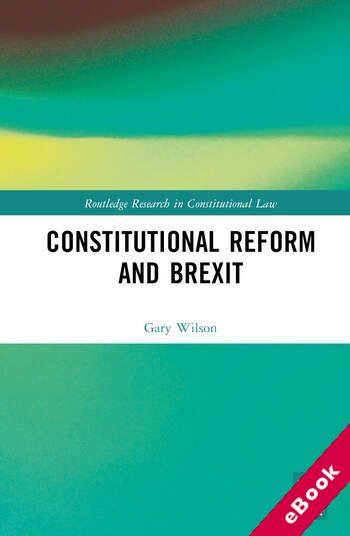
The device(s) you use to access the eBook content must be authorized with an Adobe ID before you download the product otherwise it will fail to register correctly.
For further information see https://www.wildy.com/ebook-formats
Once the order is confirmed an automated e-mail will be sent to you to allow you to download the eBook.
All eBooks are supplied firm sale and cannot be returned. If you believe there is a fault with your eBook then contact us on ebooks@wildy.com and we will help in resolving the issue. This does not affect your statutory rights.
This book examines the extent to which Brexit has impacted upon the operation of the British constitution, prompting in turn consideration of how some of the factors which contributed towards the outcome of the 2016 referendum, as well as the event of Brexit itself, might inform debates surrounding constitutional reform moving forward. The work seeks to make sense of the constitutional implications of Brexit and to revisit some of the key debates to have taken place in respect of particular constitutional reform proposals in order to assess the extent to which recent Brexit related developments inform the perspectives which are taken upon their merits and prospects. The book is divided into two parts. The first provides some context for the substantive treatment of the potential impact of Brexit on constitutional reform debates which is to be found in part two. Part two centres on various specific constitutional reform themes or issues, which are explored further within the context of Brexit. For each such issue, the main parameters of the debates which have taken place are sketched out before moving on to consider how it has informed, or may come to be informed, by the phenomenon of Brexit. By so doing, it looks to some future directions for constitutional reform which take account of the factors driving the discourses which gave rise to the referendum outcome and subsequent developments, as well as offering meaningful responses to these. The book will be of interest to academics, researchers and policy-makers working in the areas of constitutional law, constitutional politics, philosophy and history.